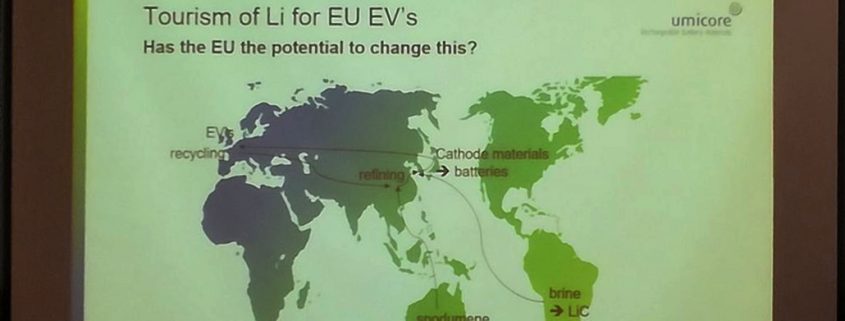LPRC at the “Building the lithium value chain in Portugal” seminar, Brussels
On the 27th of June, LPRC attended a conference based on the litium value chain. The event entitled “Building the lithium value chain in Portugal” brought together stakeholders and other interested parties in the theme, and LPRC was amongst them.
Lithium is quickly becoming a crucial element for modern society: it leads the electrification of transport and energy sectors, needed for the necessary changes towards a carbon neutral society. This was acknowledged by European responsible persons from the Portuguese and European institutions such as the DGEG and DG Grow, respectively. In order to push for a greener, more sustainable community, the EU needs to foster the entire value chain of lithium, from mineral prospection to recycling, with the circular economy concept as a goal.
Many stakeholders including exploration and processing companies, and users of lithium as a final product such as Tesla and Umicore had talks regarding lithium during this event. One of the main points arising from discussions is that lithium is a very important and strategic element for the future, and Portugal, as well as other European countries, has the potential to explore lithium resources that can make Europe lead the electrification revolution in the near future.
However, there needs to be a lot of effort to improve the current processing technologies, if Europe wants to take full advantages of its natural resources. To support this view the EU has already created groups to deal with batteries and lithium related products issues and will invest more in research and innovation in this field.
The future of lithium in Europe is bright, but there needs to be a common effort from stakeholders to make it happen coupled with a continuous look into the near future.

